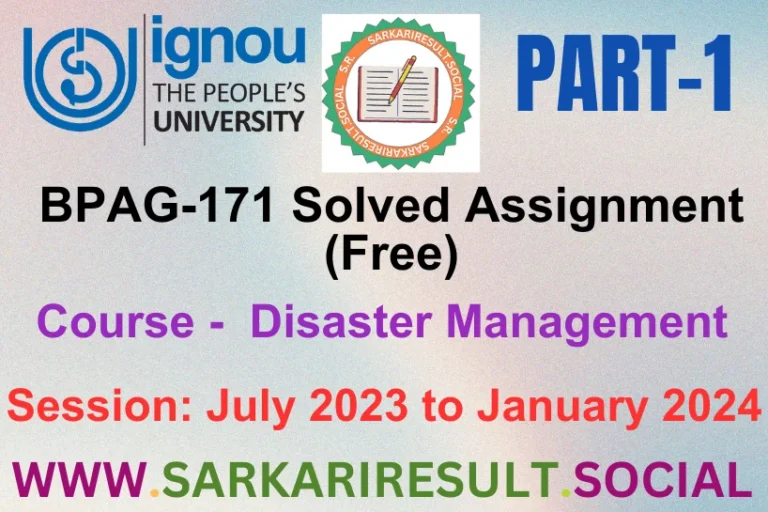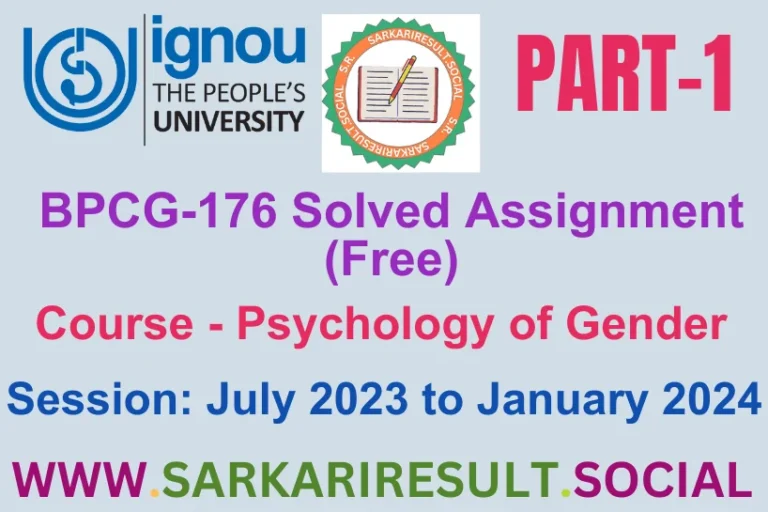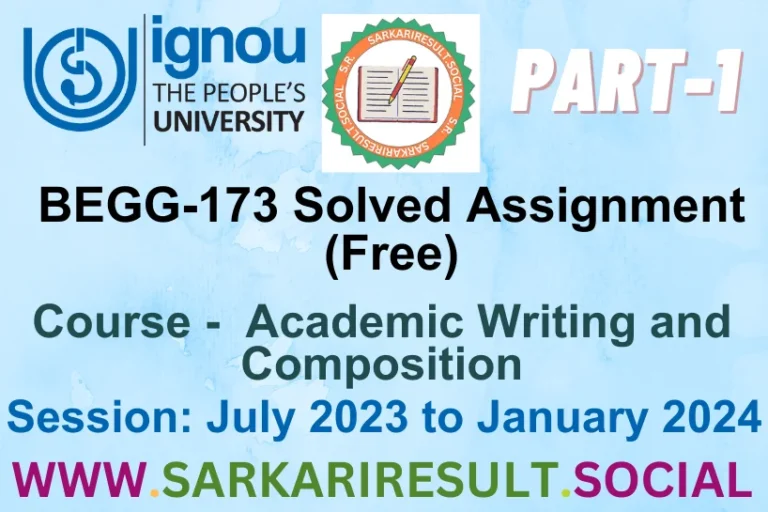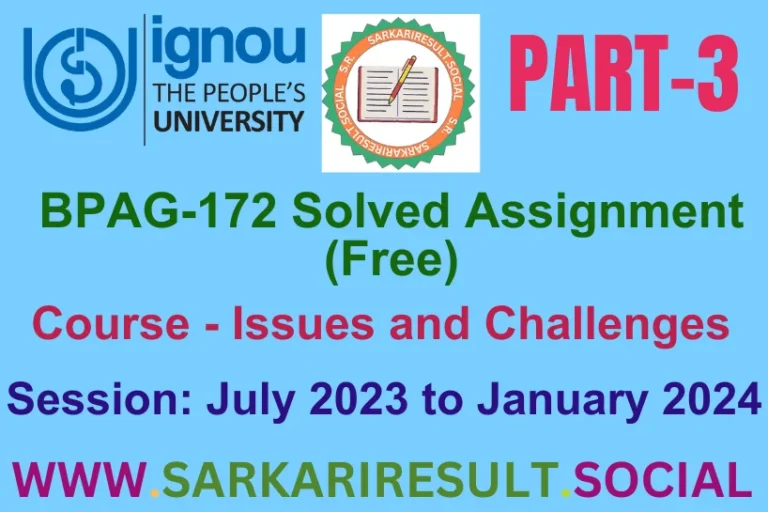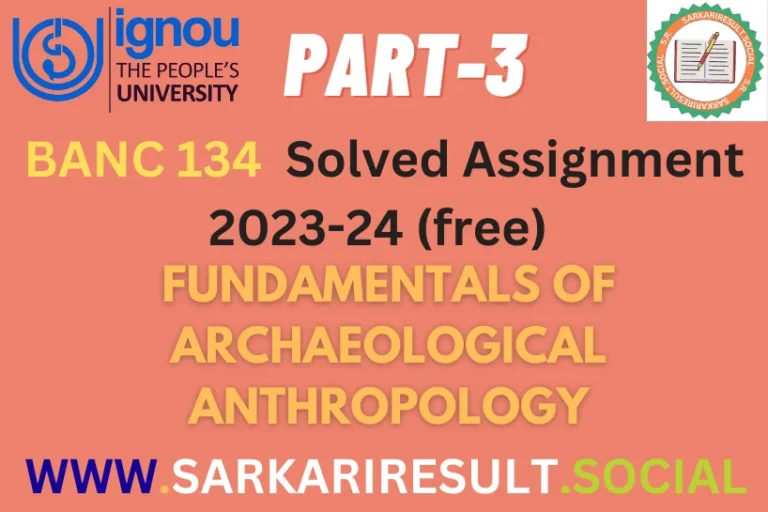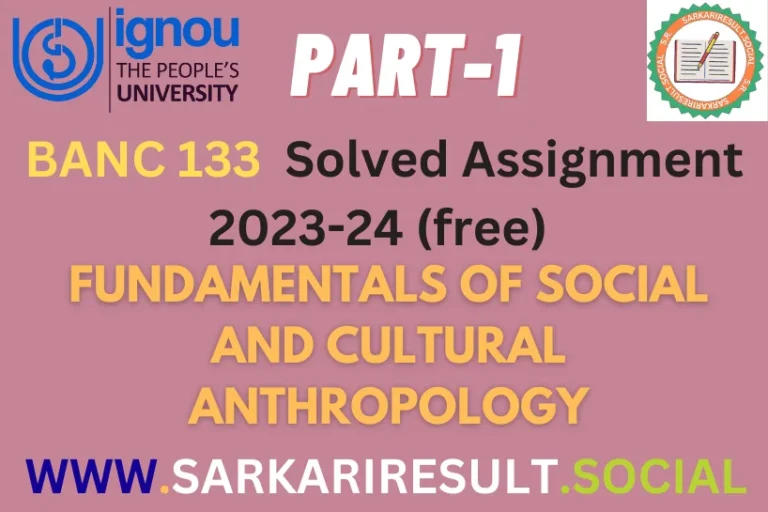BANC 131 IGNOU Solved Assignment 2023-24 (free) Part -3
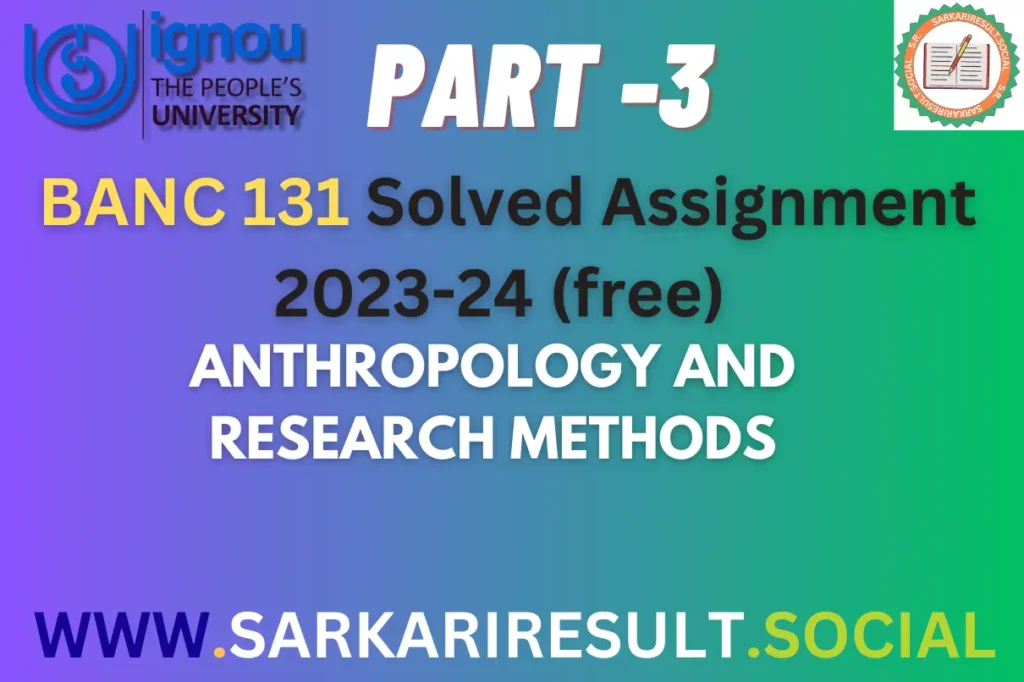
BANC 131 IGNOU Solved Assignment 2023-24 (free) Part -3
Get ready to excel in BANC 131 IGNOU Solved Assignment 2023-24 (free) Part -2 with our comprehensive solved assignments for 2023-24! Assignment C enhances your capacity to recall pertinent information. Follow the provided instructions and stay within the word limits to maximize your success. Scoring well in these assignments is essential for eligibility in the term-end examination. Enhance your anthropology knowledge and academic performance today! Grab your BANC-131 IGNOU solved assignment 2023-24 now!
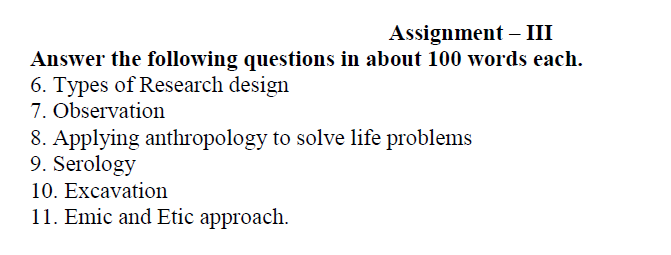
Q.6 Types of Research design
Ans. Research designs encompass various approaches for conducting investigations. Key types include:
1. Descriptive Research: This design aims to provide an accurate depiction of a phenomenon or population, often through surveys or observations.
2. Experimental Research: In experimental studies, researchers manipulate variables to observe cause-and-effect relationships, often employing control groups.
3. Correlational Research: Researchers examine relationships between variables without manipulating them, measuring their degree of association.
4. Qualitative Research: This design focuses on exploring complex phenomena through in-depth analysis of subjective data, such as interviews or content analysis.
5. Longitudinal Research: This design tracks the same subjects over an extended period to examine changes or developments.
6. Cross-Sectional Research: It collects data from diverse groups at one point in time to analyze differences or trends.
7. Case Study Research: In-depth investigations of a single subject or small group, often used in psychology, sociology, and medicine.
BANC 131 IGNOU Solved Assignment 2023-24 (free) Part -2
Q.7 Observation
Ans. Observation is a systematic process of gathering information by visually or sensorily perceiving and recording events, behaviors, or phenomena. It is a fundamental research method used in various fields, such as science, anthropology, and psychology. Observations can be naturalistic, where researchers study subjects in their natural environments without intervention, or structured, involving predefined criteria and controlled conditions. They provide valuable insights into patterns, trends, and relationships, aiding in scientific discovery and understanding human behavior. Careful and unbiased observation is crucial for generating accurate data and informing research, often serving as a foundation for further analysis and hypothesis testing.
Q.8 Applying anthropology to solve life problems
Ans. Applying anthropology to solve life problems involves utilizing the discipline’s tools and insights to address real-world challenges. Anthropologists can help communities by understanding their unique cultural contexts and social dynamics. For instance, in healthcare, anthropologists can design culturally sensitive interventions to improve health outcomes. In business, they can analyze consumer behavior and preferences. In conflict resolution, anthropologists can mediate cross-cultural disputes. Their expertise in understanding diverse perspectives and behaviors equips them to find effective solutions that respect cultural differences, promote inclusivity, and ultimately enhance the well-being of individuals and communities, demonstrating the practical relevance of anthropology in solving pressing life problems.
Q.9 Serology
Ans. Serology is a branch of laboratory science that studies blood serum, focusing on antibodies, antigens, and other immune system components. It plays a vital role in diagnosing infectious diseases, assessing immunity levels, and conducting forensic investigations. By analyzing blood samples, serologists can detect specific antibodies produced in response to infections or vaccinations, aiding in disease identification and tracking. Additionally, serological tests help confirm paternity, determine blood types, and investigate crimes by examining bodily fluids at crime scenes. Serology’s applications extend across medicine, criminal justice, and public health, providing valuable insights into health, genetics, and criminal investigations through blood-related evidence.
BANC 131 IGNOU Solved Assignment 2023-24 (free) Part -1
Q.10 Excavation
Ans. Excavation is a systematic process of uncovering and recovering archaeological or geological materials from beneath the Earth’s surface. It involves carefully removing layers of soil, sediment, or rock to reveal artifacts, fossils, structures, or geological features. Archaeological excavation aims to study and preserve the material remains of past human civilizations, shedding light on their cultures and histories. In geology, excavation helps uncover rock layers and fossils, contributing to our understanding of Earth’s history. The process involves tools like shovels, trowels, and brushes, and requires meticulous documentation to record the context and location of each find.
Q.11 Emic and Etic approach.
Ans. The emic and etic approaches are contrasting perspectives in the field of anthropology. The emic approach seeks to understand a culture from within, focusing on the insider’s perspective and the cultural meanings, symbols, and values that are significant to the people within that culture. It emphasizes cultural relativism and aims to capture the nuances and complexities of a society’s beliefs and practices as understood by its members.
In contrast, the etic approach is an outsider’s perspective that applies universal analytical frameworks or concepts to study a culture objectively, often comparing it to other cultures. It seeks to identify cross-cultural patterns and similarities, allowing for broader generalizations and comparisons across different societies. Both approaches are valuable tools for anthropologists, offering complementary insights into the study of human cultures.

